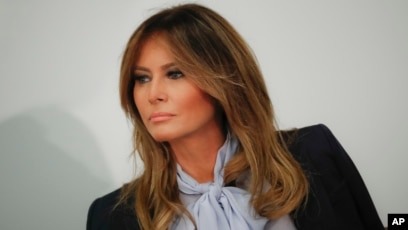Melania Trump, the former First Lady of the United States, has once again drawn attention due to renewed discussions about the nature of her U.S. immigration process. The focus lies specifically on the visa through which she obtained permanent residency—an EB-1 visa, often referred to informally as the “Einstein visa.” This category of U.S. visa is designed for individuals with “extraordinary ability” in their field, including achievements recognized on a national or international level.
The EB-1 visa, formally classified as EB-1A for individuals with extraordinary ability, is a part of the United States’ employment-based immigration system. According to the U.S. Citizenship and Immigration Services (USCIS), this visa is reserved for those who can demonstrate sustained acclaim in areas such as science, education, business, athletics, or the arts. The program is known for its stringent requirements, often requiring a record of extraordinary accomplishments substantiated by documentation such as awards, published work, media coverage, and significant contributions to the applicant’s field.
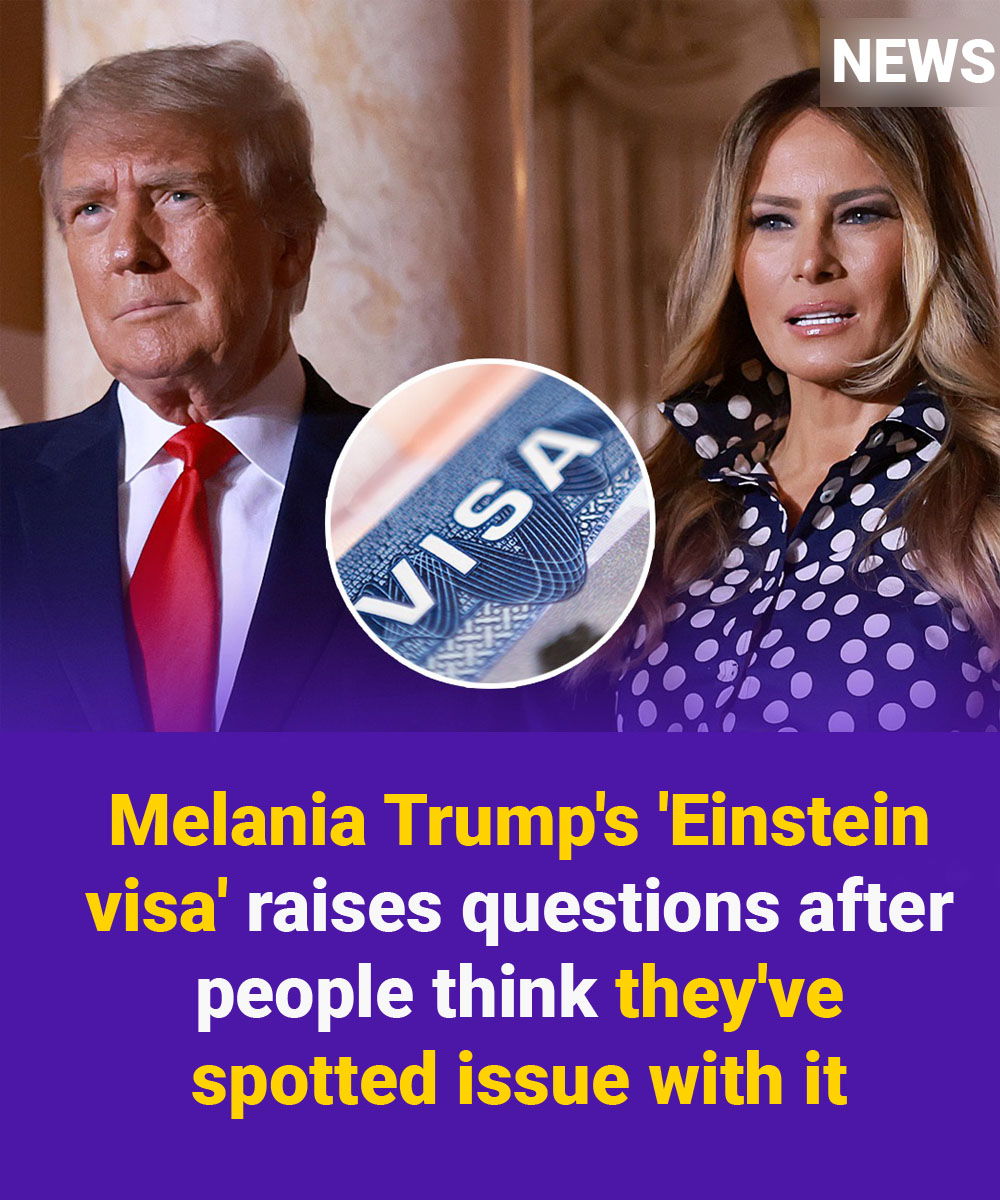
EB-1 Visa Criteria Explained
To qualify for an EB-1A visa, an applicant must either receive a major, internationally recognized award—like a Nobel Prize—or fulfill at least three of ten eligibility criteria set by USCIS. These criteria include:
-
Receipt of nationally or internationally recognized prizes or awards for excellence.
-
Membership in associations requiring outstanding achievements.
-
Published material about the applicant in professional or major trade publications.
-
Participation as a judge of others’ work.
-
Original contributions of major significance.
-
Authorship of scholarly articles.
-
Display of work at exhibitions or showcases.
-
Leading or critical roles for distinguished organizations.
-
High salary in relation to others in the field.
-
Commercial success in performing arts.
Unlike other visa categories, the EB-1 does not require a job offer or labor certification. This independence makes it attractive to applicants who meet the stringent qualifications.

Melania Trump’s Background and Visa Application
Melania Trump, born Melanija Knavs in Slovenia, moved to the United States in the 1990s to pursue a career in fashion modeling. She worked with agencies in Milan and Paris before signing with a U.S.-based modeling agency. In 2001, she was granted a green card under the EB-1 category, and she became a naturalized U.S. citizen in 2006.
The exact details of her visa petition remain confidential, as immigration filings are protected under privacy laws. However, her lawyer, Michael Wildes, publicly confirmed in past media interviews that Melania qualified based on her modeling work and documentation provided during the application process. According to Wildes, she satisfied the EB-1 criteria based on her professional accomplishments, media coverage, and high-profile modeling contracts.
Multiple major news outlets, including The Washington Post, The New York Times, and CNN, have covered Melania Trump’s immigration path, noting that although it is unusual for fashion models to receive EB-1 visas, it is not unprecedented. Other individuals in the entertainment and modeling industries have also qualified for the visa by demonstrating wide recognition and impact within their profession.
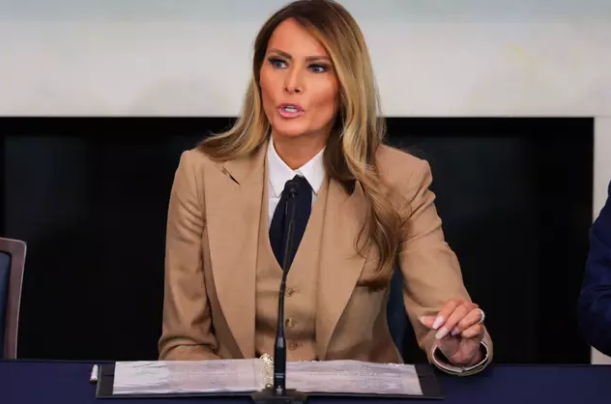
Public and Political Reactions
Debate over Melania Trump’s visa resurfaced during and after her tenure as First Lady, particularly in light of former President Donald Trump’s restrictive immigration policies. Critics have pointed to a perceived contradiction between the administration’s hardline stance on immigration and Melania’s use of a relatively exclusive visa category.
Some lawmakers, such as U.S. Representative Jasmine Crockett, have publicly questioned whether Melania’s career met the EB-1 threshold, especially when compared to other internationally recognized figures in the modeling industry. While such commentary has sparked discussion, no official agency has challenged the legitimacy of her visa status.
Supporters argue that Melania Trump followed the proper legal procedures and met the necessary qualifications at the time. Legal experts emphasize that immigration officers evaluate EB-1 applications based on evidence provided, including documentation of past achievements, media exposure, endorsements, and professional affiliations.
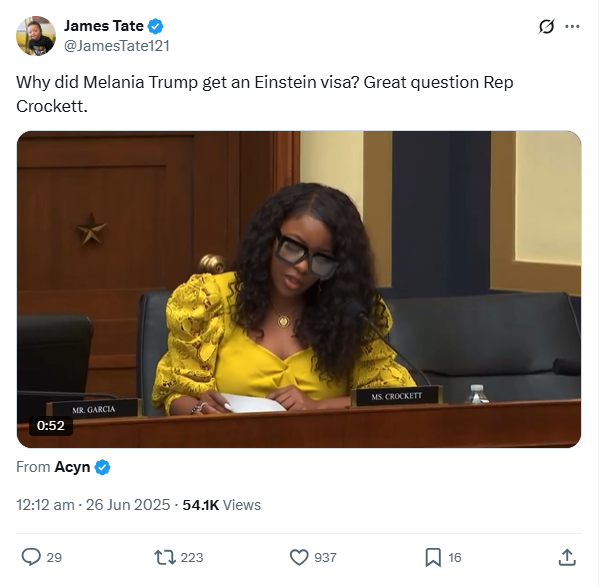
Legal Insights on the EB-1 Visa Process
Immigration attorneys familiar with the EB-1 process explain that the success of an application depends heavily on the strength of the evidence presented. According to Susan McFadden, a senior partner at Gudeon & McFadden LLP specializing in U.S. immigration, applicants often rely on a combination of professional portfolios, media features, and expert recommendations to build their case.
Similarly, Nita Upadhye, managing attorney at NNU Immigration in California, notes that while the criteria may appear straightforward, interpretation by immigration officials can vary. Endorsements from well-established individuals or industry leaders, though not officially listed among USCIS criteria, may strengthen the overall presentation and credibility of an application.
Both attorneys agree that while the EB-1 is commonly associated with Nobel laureates, athletes, and performers, individuals in fields such as fashion or media can also qualify—provided their documentation meets the evidentiary burden and reflects extraordinary ability as defined by U.S. law.
Family Immigration and Sponsorship
After becoming a U.S. citizen in 2006, Melania Trump later sponsored her parents, Viktor and Amalija Knavs, for permanent residency. This process was conducted through family reunification channels, a long-standing element of U.S. immigration policy. Known as family-based green cards, this pathway is available to U.S. citizens who petition for immediate family members, including parents, spouses, and children.
Public attention to Melania’s sponsorship of her parents has also sparked discussion about the so-called “chain migration” system, a term often used politically. However, under U.S. immigration law, family reunification remains a cornerstone policy, and there is no indication that the Knavs’ immigration process violated any statutes.
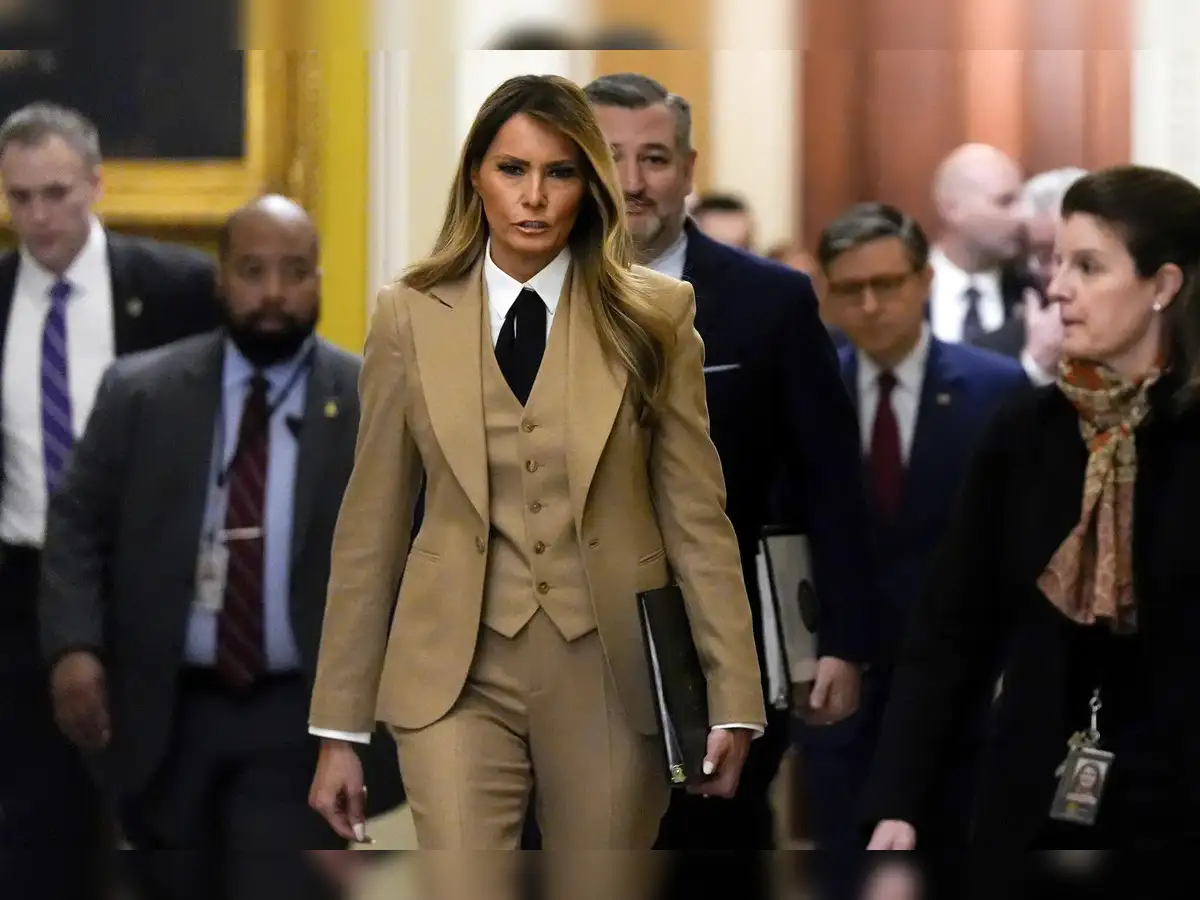
Broader Implications in Immigration Discourse
The discussions surrounding Melania Trump’s EB-1 visa serve as a lens through which broader issues in U.S. immigration policy are viewed. The topic reveals how immigration paths can vary widely depending on an individual’s background, qualifications, and legal representation. It also underscores the complexities involved in visa adjudication, especially when public figures are involved.
While political and media scrutiny may influence public perception, visa eligibility and approval are ultimately determined by immigration officers reviewing evidence against statutory criteria. Melania Trump’s case, though unique in its visibility, follows a legal pathway that thousands of applicants navigate each year—many of whom do not attract similar attention.
Conclusion
Melania Trump’s acquisition of the EB-1 visa has become a focal point in ongoing conversations about immigration fairness, legal criteria, and policy consistency. Though questions have been raised about her eligibility, there is no public evidence indicating any wrongdoing or misrepresentation in her immigration process. Her case highlights the multifaceted nature of U.S. immigration law, which allows individuals from diverse fields to qualify for extraordinary ability visas under carefully defined conditions.
As immigration continues to be a key issue in national discourse, stories like Melania Trump’s reflect the nuanced legal, social, and personal factors that shape how individuals come to live and work in the United States.
Sources:
-
U.S. Citizenship and Immigration Services (uscis.gov) – EB-1 Visa Requirements
-
The Washington Post – “Melania Trump received U.S. citizenship through ‘Einstein visa,’ experts say”
-
CNN Politics – “First Lady’s visa history examined amid White House immigration debate”
-
The New York Times – “Melania Trump’s Path to U.S. Citizenship”
-
NPR – “Understanding the EB-1 Visa”
-
Gudeon & McFadden LLP – Visa Expert Interviews
-
NNU Immigration – Legal Perspectives on Extraordinary Ability Visas
